Most of the ships we arrange for you carry containers. After all, a large part of world trade is carried out in these standardized “boxes”.
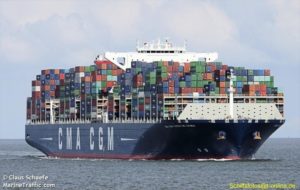
Container vessel, 184,700 tons deadweight, 18.000 TEU
The construction of modern container ships is designed in a way that as little space as possible is wasted during loading. Freight or slot capacity is expressed in TEUs (Twenty-Foot Equivalent Units), the number of 20-foot containers that can be loaded. A container ship with 18,000 TEU thus has slots for 18,000 20-foot containers. However, 40-foot and even 45-foot containers are increasingly being used today.
In order to provide an accurate picture of the load capacity, the unit of measurement of the 14mt homogeneous load is also used. It indicates how many containers weighing 14 metric tons a ship can load with balanced stowage.
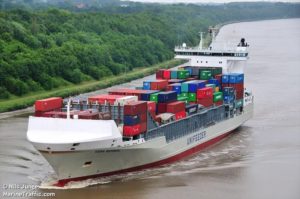
Container feeder ship, 17,900 tons deadweight / 1,425 TEU
By the way: most container ships do not have their own loading gear, depending on the area of operation. Loading and unloading can only take place in ports with corresponding container terminals with loading bridges.
So-called Ro-Ro container ships sail to North and South America, West Africa and the Mediterranean. Ro-Ro stands for Roll on Roll off and indicates that these ships carry not only containers but also vehicles of all kinds.
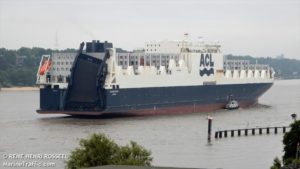
Ro-Ro Container vessel, 56,000 tons deadweight / 3,800 TEU and about 1,300 cars
We also offer to travel on the so-called Coastal Motor Ships. They operate mainly in the regions of North Sea and Baltic Sea and serve even the smallest ports.
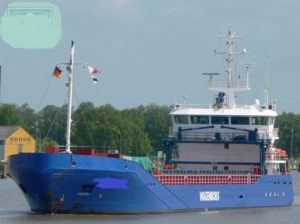
Coastal Motor Ship, 2,600 tons deadweight
The coasters transport general cargo and bulk goods such as steel, cellulose, salt, wood or paper.
Inland vessels are the extended arm of ocean-going vessels when they carry the cargo from the major port cities to the inland and vice versa.
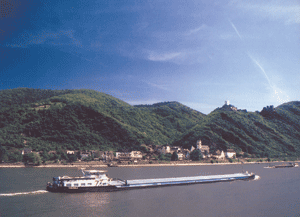
Inland vessel, 2,600 tons deadweight
The small inland vessels operate on even the smallest rivers and canals, often in the Netherlands, Belgium, France but also in Germany.

Inland vessel, type Freycinet – Peniche, 360 tons deadweight
Our ships operate on rivers, canals, lakes and oceans.
You will find the individual voyages here.

